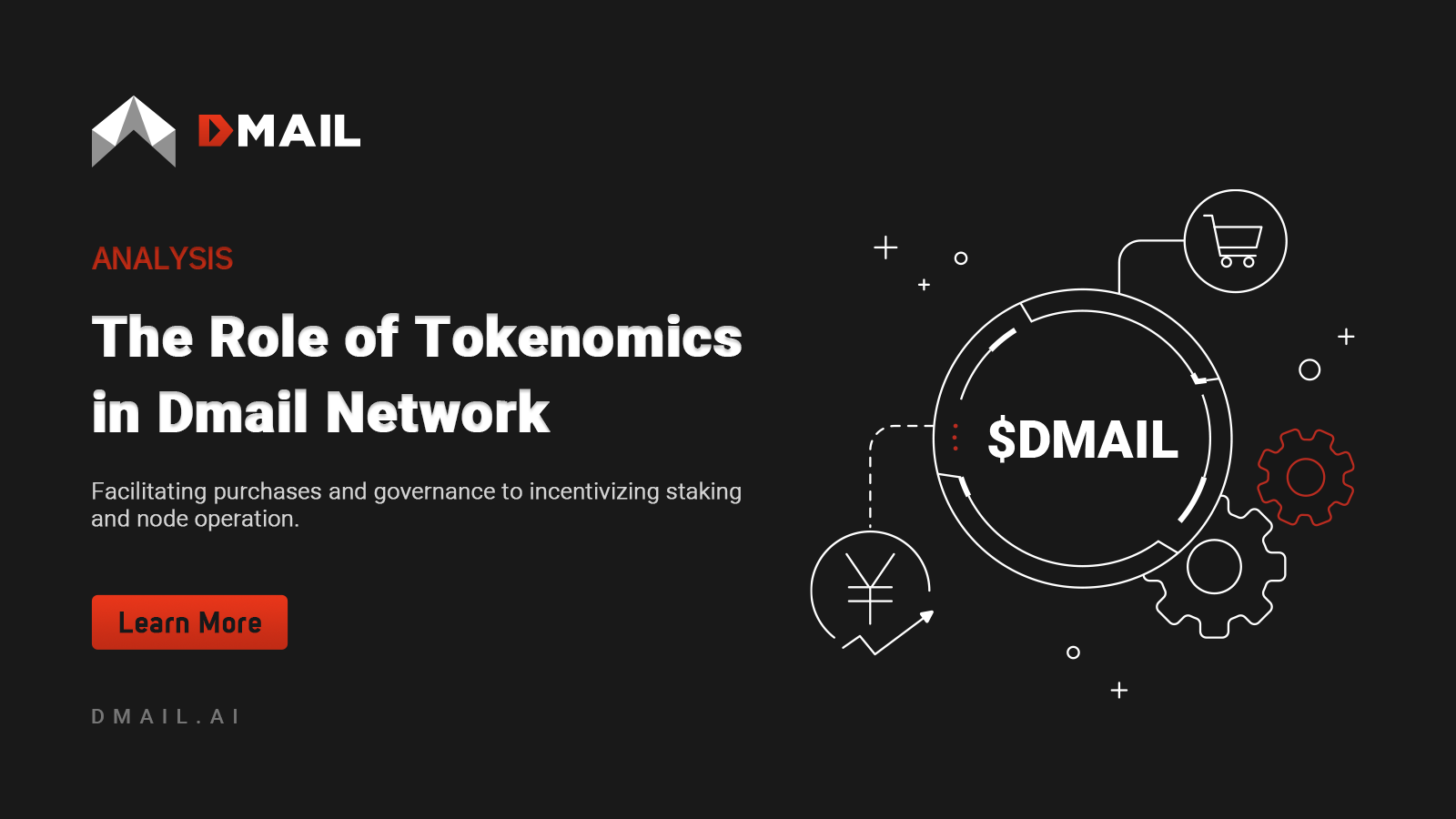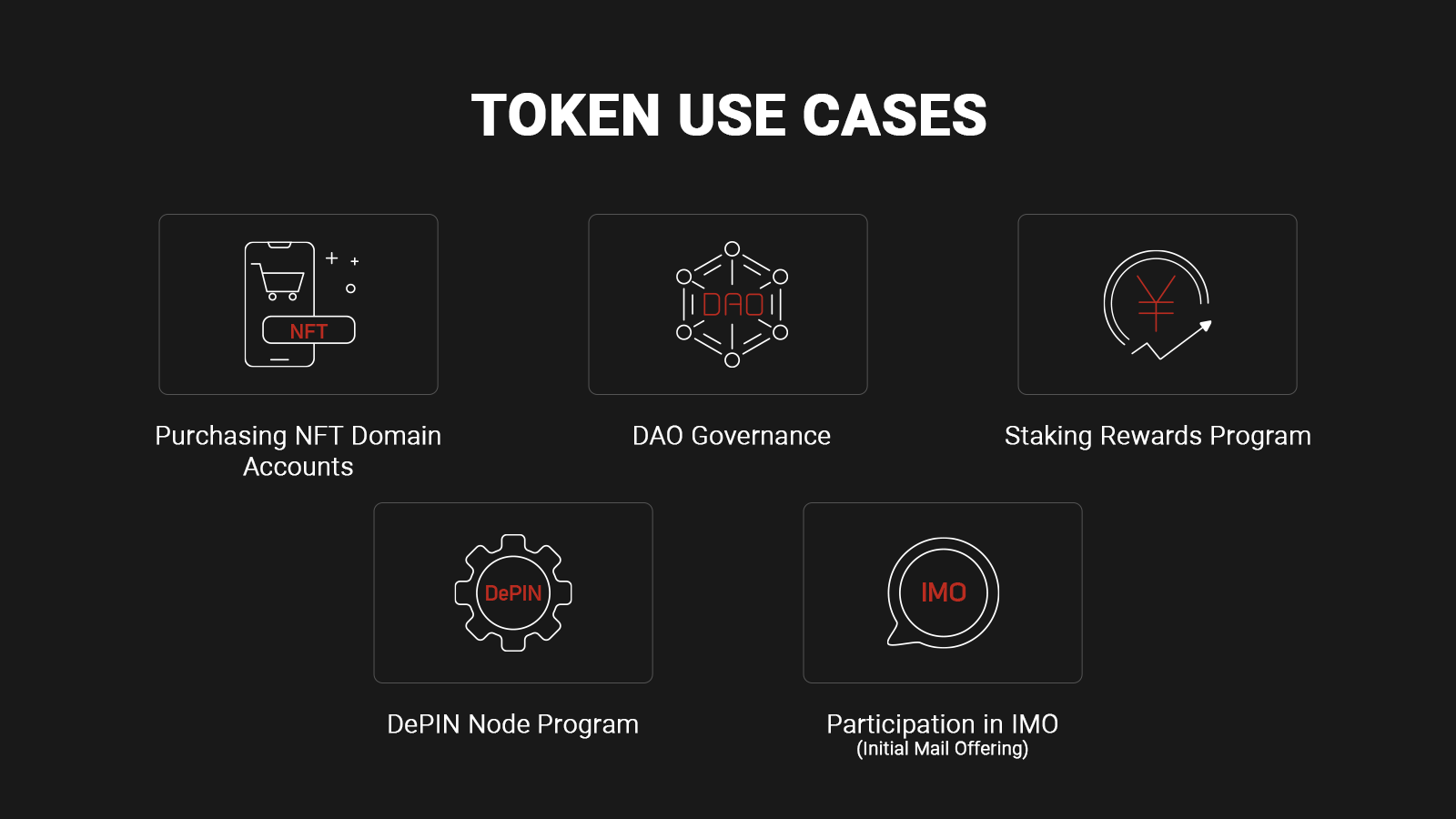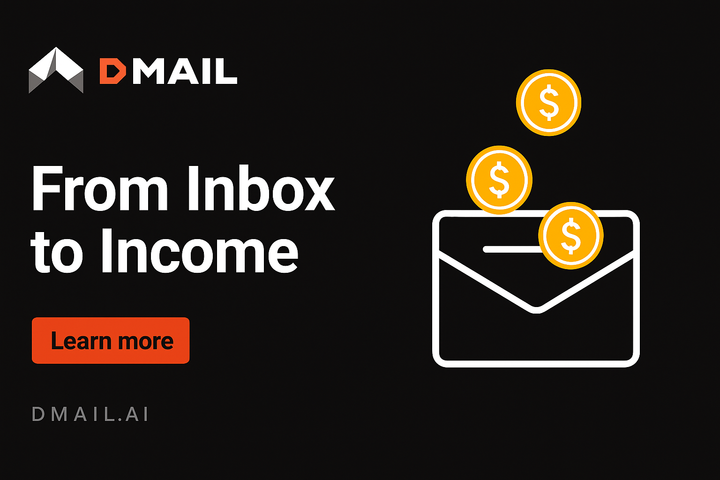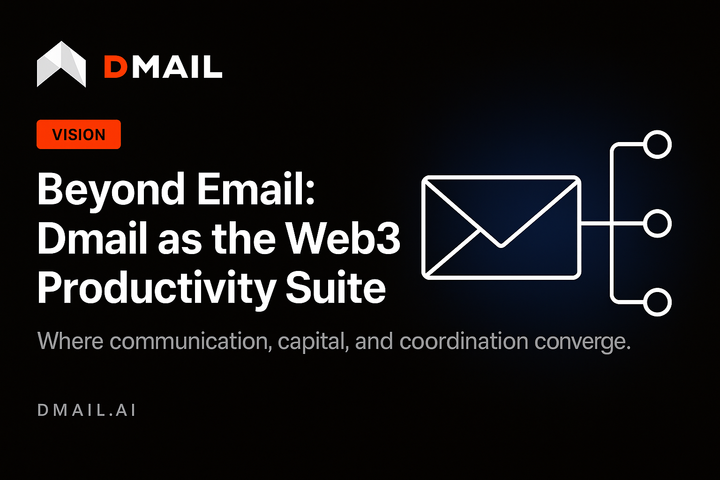Incentivizing Participation: The Role of Tokenomics in Dmail Network
The $DMAIL token serves multiple critical functions within the Dmail Network, from facilitating purchases and governance to incentivizing staking and node operation.

Tokenomics plays a crucial role in fostering user engagement and ensuring the sustainability of decentralized networks. For Dmail Network, an innovative web3 communications protocol, a well-crafted tokenomics model drives participation, rewards contributors, and maintains network health. This article delves into the various use cases for the $DMAIL token within the Dmail Network ecosystem, illustrating how each use case incentivizes participation and enhances the overall value proposition of the network.

Token Use Cases
1. Purchasing NFT Domain Accounts
Overview
Dmail Network has launched its first payment scenario, allowing users to use $DMAIL tokens to purchase NFT domain accounts. This use case integrates the token directly into the platform's core services, providing tangible utility for $DMAIL.
In-depth Analysis
- Utility and Value: Enabling the purchase of NFT domain accounts with $DMAIL gives the token immediate utility, encouraging users to acquire and hold it. NFT domains on the Dmail Network offer unique, personalized addresses that enhance user identity and brand presence in the decentralized web.
- User Adoption: This drives user adoption by offering a valuable service that requires $DMAIL. As more users seek to secure their unique NFT domains, demand for the token increases, positively impacting its market value.
- Monetization and Growth: Revenues from domain sales can be reinvested into the network, funding further development and innovation.
2. DAO Governance
Overview
DAO governance will allow $DMAIL token holders to participate in the decision-making processes that shape the future of the Dmail Network, ensuring the network evolves in line with the community’s interests.
In-depth Analysis
- Decentralized Decision-Making: DAO governance empowers token holders to propose and vote on key decisions, from protocol upgrades to resource allocation. This democratic approach ensures the network's direction reflects the collective will of its community members.
- Incentivizing Participation: Active participation in governance is incentivized by granting voting power proportional to the number of tokens held. This encourages users to hold $DMAIL and engage in the governance process, fostering a more invested community.
- Transparency and Trust: DAO governance enhances transparency and trust within the network. Decisions are made openly and collectively, reducing centralization risks.
3. Staking Rewards Program
Overview
The staking rewards program incentivizes long-term holding and participation by offering rewards for staking $DMAIL tokens. Initially, participants receive airdrop points, which later convert to token yield as the network matures.
In-depth Analysis
- Promoting Long-Term Holding: Staking rewards encourage users to lock their tokens for a specified period, reducing circulating supply and potentially increasing token value over time.
- Earning Airdrop Points: Early participants earn airdrop points, convertible to $DMAIL tokens or other rewards. This creates an immediate incentive to stake tokens and participate in the network from the outset.
- Yield Generation: As the network grows, staking rewards transition from airdrop points to actual token yield, providing a continuous stream of income for participants. This ensures long-term engagement and loyalty.
4. DePIN Node Program
Overview
The DePIN (Decentralized Physical Infrastructure Networks) node program uses $DMAIL tokens to incentivize the operation and maintenance of network nodes, enhancing the network’s decentralization and performance.
In-depth Analysis
- Decentralization: Incentivizing node operation through $DMAIL rewards achieves greater decentralization. Distributed nodes reduce central points of failure, enhancing network security and resilience.
- Performance Optimization: Node operators maintain high performance and uptime to maximize their rewards, ensuring the network remains robust and efficient.
- Community Involvement: The DePIN node program fosters community involvement by enabling individuals to contribute to the network’s infrastructure. This sense of ownership strengthens community bonds and commitment to the network’s success.
5. Participation in IMO (Initial Mail Offering)
Overview
Holding $DMAIL tokens allows users to participate in IMOs (Initial Mail Offerings), providing access to exclusive membership benefits and early access to new features or services within the Dmail Network.
In-depth Analysis
- Exclusive Access: IMOs grant $DMAIL holders early or exclusive access to new services, features, or membership benefits, adding significant value to holding and using the token.
- Early Adoption Incentives: Participants in IMOs can become early adopters of new innovations within the network, rewarding their loyalty and influencing new feature development.
- Community Growth: IMOs attract new users by offering appealing membership benefits, contributing to the overall expansion and vitality of the Dmail Network ecosystem.
Conclusion
The $DMAIL token serves multiple critical functions within the Dmail Network, from facilitating purchases and governance to incentivizing staking and node operation. Each use case is designed to drive participation, foster community engagement, and enhance the network's overall value. As Dmail Network continues to innovate and expand, its robust tokenomics model will play an essential role in maintaining its decentralized, efficient, and user-driven ecosystem.
For more details on $DMAIL tokenomics, visit the Dmail Network Tokenomics Page.
Connect with Dmail: Website | Twitter | Discord | Github | Telegram






Comments ()